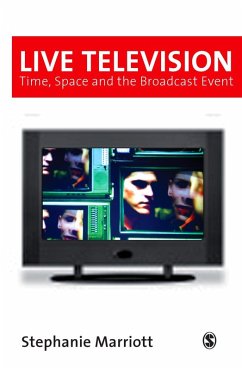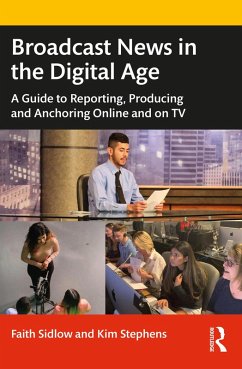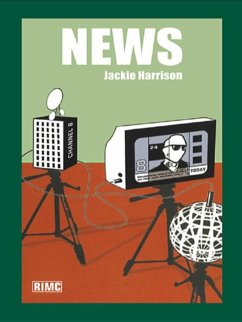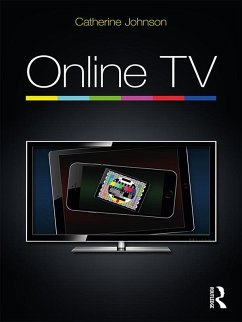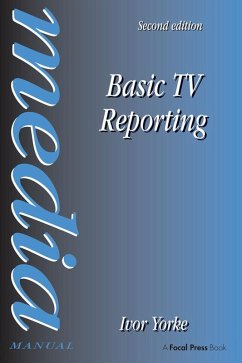
Television Journalism (eBook, PDF)
Versandkostenfrei!
Sofort per Download lieferbar
40,95 €
inkl. MwSt.
Weitere Ausgaben:

PAYBACK Punkte
20 °P sammeln!
"Amidst the glut of studies on new media and the news, the enduring medium of television finally gets the attention it deserves. Cushion brings television news back into perfect focus in a book that offers historical depth, geographical breadth, empirical analysis and above all, political significance. Through an interrogation of the dynamics of and relations between regulation, ownership, the working practices of journalism and the news audience, Cushion makes a clear case for why and how television news should be firmly positioned in the public interest. It should be required reading for any...
"Amidst the glut of studies on new media and the news, the enduring medium of television finally gets the attention it deserves. Cushion brings television news back into perfect focus in a book that offers historical depth, geographical breadth, empirical analysis and above all, political significance. Through an interrogation of the dynamics of and relations between regulation, ownership, the working practices of journalism and the news audience, Cushion makes a clear case for why and how television news should be firmly positioned in the public interest. It should be required reading for anyone concerned with news and journalism."
- Natalie Fenton, Goldsmiths, University of London
"An admirably ambitious synthesis of journalism scholarship and journalism practice, providing a comprehensive resource of historical analysis, contemporary trends and key data."
- Stewart Purvis, City University and former CEO of ITN
Despite the democratic promise of new media, television journalism remains the most viewed, valued and trusted source of information in many countries around the world.
Comparing patterns of ownership, policy and regulation, this book explores how different environments have historically shaped contemporary trends in television journalism internationally. Informed by original research, Television Journalism lays bare the implications of market forces, public service interventions and regulatory shifts in television journalism's changing production practices, news values and audience expectations.
Accessibly written and packed with topical references, this authoritative account offers fresh insights into the past, present and future of journalism, making it a necessary point of reference for upper-level undergraduates, researchers and academics in broadcasting, journalism, mass communication and media studies.
- Natalie Fenton, Goldsmiths, University of London
"An admirably ambitious synthesis of journalism scholarship and journalism practice, providing a comprehensive resource of historical analysis, contemporary trends and key data."
- Stewart Purvis, City University and former CEO of ITN
Despite the democratic promise of new media, television journalism remains the most viewed, valued and trusted source of information in many countries around the world.
Comparing patterns of ownership, policy and regulation, this book explores how different environments have historically shaped contemporary trends in television journalism internationally. Informed by original research, Television Journalism lays bare the implications of market forces, public service interventions and regulatory shifts in television journalism's changing production practices, news values and audience expectations.
Accessibly written and packed with topical references, this authoritative account offers fresh insights into the past, present and future of journalism, making it a necessary point of reference for upper-level undergraduates, researchers and academics in broadcasting, journalism, mass communication and media studies.
Dieser Download kann aus rechtlichen Gründen nur mit Rechnungsadresse in A, D ausgeliefert werden.




